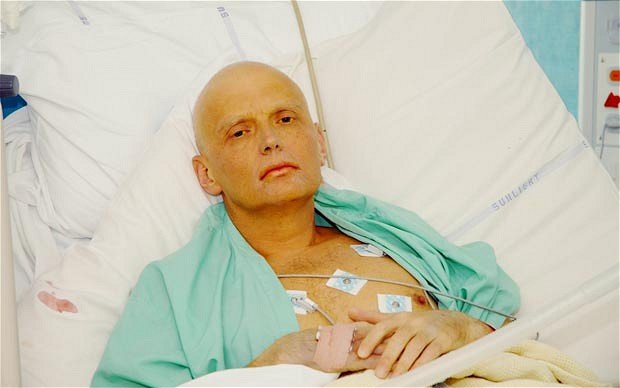The public inquiry into Alexander Litvinenko’s death has heard that the ex-Russian spy may have been poisoned with polonium “not once but twice”.
Alexander Litvinenko died from radiation poisoning in a London hospital in November 2006 at the age of 43, nearly three weeks after drinking tea laced with the substance.
Russians,Andrei Lugovoi and Dmitry Kovtun, have denied any involvement.
Alexander Litvinenko may also have been poisoned in October 2006, counsel to the inquiry Robin Tam QC said.
He had fled to the UK where he became a vocal critic of the Kremlin and worked for the UK’s intelligence service MI6.
Alexander Litvinenko had recalled feeling unwell around the time of a meeting at a security company in mid-October and “vomiting on one occasion about two or three weeks before being hospitalized”, Robin Tam said.
“Hair samples that are available indicate that Mr. Litvinenko may well have been poisoned twice and that the first occasion being much less severe than the second.”
The two men suspected of killing Alexander Litvinenko made three trips to London in the run up to his death and brought Polonium to try to kill him each time.
The judge-led inquiry was officially opened by presiding judge Sir Robert Owen at the Royal Courts of Justice.
Judge Robert Owen said Alexander Litvinenko’s death from radiation poisoning in London in 2006 had attracted “worldwide interest and concern”.
Alexandr Litvinenko’s widow Marina says he blamed the Kremlin as he lay dying in hospital, but Russia denies any involvement.
Her lawyer has described his murder as “an act of state-sponsored nuclear terrorism on the streets of London”.
Alexander Litvinenko was poisoned with radioactive polonium-210, following a meeting with two Russians at the Millennium Hotel in central London.
Dmitry Kovtun and former KGB bodyguard Andrei Lugovoi – whom the UK police have identified as suspects in the case – have been invited to give evidence via videolink from Russia, Robert Owen said.
Andrei Lugovoi told Russian television station LifeNews TV on January 27 that there could be no fair trial in Britain.
“They classified the materials, saying Litvinenko co-operated with English intelligence. How can it be investigated impartially after that?” he said.
“This is why we pulled out in protest – we want it to be investigated but we want it to be impartial and, moreover, we want it investigated in Russia.”
Judge Robert Owen said sensitive evidence had established there was a “prima facie case” as to the culpability of the Russian state in Alexander Litvinenko’s death.
The judge said the use of polonium could have killed large numbers of people “or spread general panic and hysteria among the public”.
“The issues to which his death gives rise are of the utmost gravity and have attracted worldwide interest and concern,” he said.
Judge Robert Owen was originally appointed as the coroner at Alexander Litvinenko’s inquest but he called for a public inquiry because the inquest could not consider sensitive evidence due to national security fears.
The UK government resisted the move at first but later changed its stance last July, amid worsening relations with Moscow over the crisis in Ukraine.
[youtube WPIota5WOd0 650]
